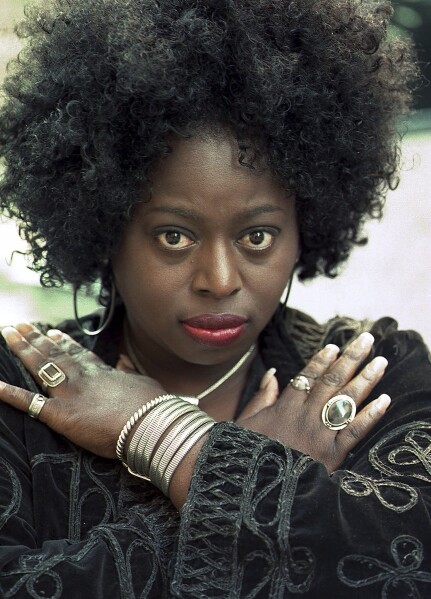Listeners:
Top listeners:
-
play_arrow
Vibrant Radio
-
 play_arrow
play_arrow
Top Techno Podcast Yana Bolder
-
 play_arrow
play_arrow
Summer Festival Podcast Robot Heart
-
 play_arrow
play_arrow
Berlin Sound Podcast Robot Heart
-
 play_arrow
play_arrow
Electronic Trends Podcast Aaron Mills
-
 play_arrow
play_arrow
New Year Eve Podcast Robot Heart
-
 play_arrow
play_arrow
ADE podcast Robot Heart
-
 play_arrow
play_arrow
Techno Podcast Robot Heart
-
 play_arrow
play_arrow
Flower Power Festival Podcast Robot Heart
-
 play_arrow
play_arrow
Tech House Podcast Robot Heart
-
 play_arrow
play_arrow
Winter Festival Podcast Robot Heart

A Life in Focus: Angie Stone’s Story
Angie Stone’s portraits radiate her commanding presence—her dignified posture, expressive gaze, and signature afro convey a depth of soul and self-possession. These visuals serve not only as a tribute to her beauty but also as a silent testament to her musical legacy and authenticity.
🧭 A Legacy in Song: Life & Career Highlights
Angela Laverne “Angie” Stone was born in 1961 in Columbia, South Carolina.
Her first exposure to music came from her father, a member of a gospel quartet that would practice at her house, training her ear for rhythm and vocal technique. She sang in choir and wrote poetry in junior high school, which eventually turned into songs of her own; her music career began in earnest when she and Gwendolyn Chisolm and Cheryl Cook, two childhood friends and fellow cheerleaders, formed the hip-hop trio the Sequence in high school, which signed to Sugar Hill Records after they auditioned for label boss Sylvia Robinson and the Sugarhill Gang when the MCs toured Columbia.
With the energetic “Funk You Up,” released in 1979, the Sequence became the first all-women hip-hop group to put out a charting single, which would go on to be sampled by artists such as Dr. Dre and En Vogue.
Transitioning through the R&B quartet Vertical Hold in the early 1990s, Angie then emerged as a solo powerhouse by the late ’90s. Her debut solo album, Black Diamond (1999), led with “No More Rain (In This Cloud),” which topped the Adult R&B charts for ten weeks and earned Angie her first Soul Train Lady of Soul Awards
🏛️ The Legal Battle: Funds, Rights & Universal Music Group
In December 2024 and January 2025, Angie Stone publicly accused Universal Music Group (UMG) of withholding her royalties, mechanicals, and publishing income accumulated over decades. She asserted that none of her earnings had reached her, leaving her financially unstable despite her long career.
-
In her own words:
“My publishing, my royalties, my mechanicals—they have all pretty much been stolen…and UMG has been receiving all my royalties…they’ve taken pretty much everything.”
-
She explained that many of her songs were never properly registered, meaning she was barred from receiving rightful earnings. She formed a legal team—her “diesel crew”—preparing class-action suits to reclaim her legacy.
Film-maker Tyler Perry, addressing her memorial service, publicly decried the injustice, highlighting how Stone “should have been able to retire 20 years ago” with the income she had generated.
🕵️ The Conspiracy Theory: Mystery Meets Mourning
🚐 Tragedy & Timing
On March 1, 2025, Angie was the sole fatality in a van crash in Alabama, despite being one of nine passengers. The unusual circumstances and abruptness of her passing—just weeks after her public allegations—sparked immediate speculation.
🔄 Social Media & Speculation
Fans and conspiracy-watchers pointed to a troubling pattern: Angie had just started exposing the very label that allegedly controlled her royalties. Some voices online questioned whether her vocal activism made her a target, even suggesting she may have been “removed” because she threatened powerful interests.
🧪 Allegations of Suppressed Voice
A sensational narrative circulated online, claiming Angie was being blacklisted by executives—her outspokenness used against her. Some stories even proposed spiritual or meta-level explanations, including accusations of curses or spiritual retaliation.
While no credible evidence has emerged to support foul play, these theories highlight deeper mistrust in the music business, especially around the exploitation of Black female artists.
🧠 Reflection: Artistry & Activism in Light
Angie Stone’s life and tragic passing ask us to consider not just musical legacy, but the responsibility of the industry to support transparency, fair compensation, and respect. Whether the conspiracy theories hold any truth remains unanswered—but the fact that they gained traction speaks volumes about the long time struggles she exposed.
⚖️ Final Thought
Angie Stone’s story underscores a troubling reality: artists with decades-long contributions still struggle for financial justice. Her calls to “give me my coins” echoed in the months before her death—and even in mourning, her voice demands accountability. Whether or not the conspiracy theories hold weight, Stone’s activism and artistry endure, compelling us to demand transparency and equity in the music industry.
Written by: Gary
Similar posts
Recent Posts
Recent Comments
No comments to show.Chart
Top popular

Breaking: Top Pop Star’s Surprise Album Release Sends Fans into Frenzy

Chart-Toppers Unite: Pop Music’s Biggest Collaborations of the Year

Behind the Scenes: Pop Music’s Hottest Producers and Songwriters

The Rise of K-Pop: How Korean Music Continues to Dominate the Global Scene

Exclusive Interview: Pop Sensation Opens Up About Their New Album and Personal Journey
BUILD YOUR RADIO WEBSITE WITH Pro Radio




Post comments (0)